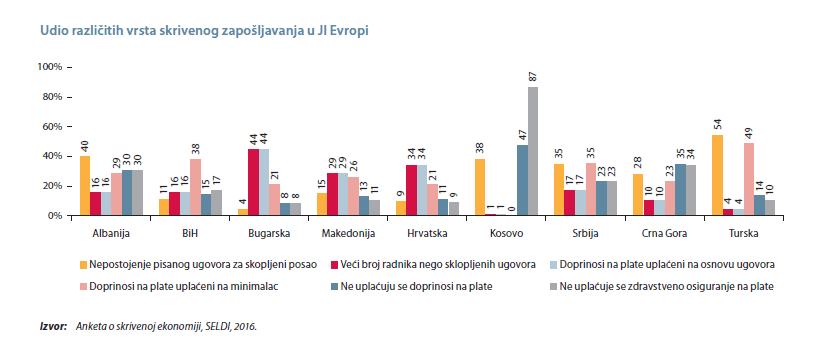The prosecution of corrupt high-ranking politicians and senior civil servants is the only way to send a strong and clear message that corruption shall not be tolerated, according to Southeast European Leadership for Development and Integrity (SELDI). The anti-corruption and good governance network from eleven countries of Southeast Europe (SEE) has researched the levels of corruption and informal economy and its impact on the energy sector in these countries.
The results show that neither Bosnia and Herzegovina (BiH), nor other eight countries of the region have made progress in fighting corruption despite their continuous efforts to improve law enforcement institutions with the assistance of the European Union. According to surveys, the citizens in the region have little trust in the success of anti-corruption measures leading to the lack of political will to support anti-corruption efforts. Thus, corruption has become a standard way of getting things done in government agencies in some countries.
The research has shown an increase of 11 percent in reported cases of corruption among civil servants in BiH. Albania leads the pack in this category – nearly every other respondent said that he/she was asked for a bribe, mostly in money, while in other countries gifts are more prevalent.
As many as 34 percent of respondents from nine countries did not consider “giving gifts to a doctor in order to take a special interest in you” as a sign of corruption. More than half believed that they would have to bribe a civil servant in order to get things done. In Bulgaria and Serbia more than 80 percent of the respondents shares this opinion.
Informal economy was one of the more obvious indicators of the rule of corruption in a society. According to SELDI’s research, it accounts for one-third of gross domestic product in BiH, with 37 percent of the respondents working informally.
Similar situation is in all countries across the region – Kosovo, Montenegro, Albania and Serbia lead in terms of the highest number of unpaid workers’ benefits, while in Turkey and BiH, the biggest number of employees pay social security based on a minimum wage.
Meanwhile, nearly all Kosovars are involved in hidden employment because they avoid paying health contributions completely (87 percent). The reason for this is their dissatisfaction with the access and quality of health services and the high level of corruption.
Other countries from the region which are dealing with serious obstacles in financing their health care are Montenegro and Albania where every third person working informally is not paying any health and pension contributions.
On average, 20 percent of employees in the SELDI countries receive untaxed wages in envelopes or additional amount than what was stated in their labor contract.
According to the SELDI network, the main factors that strengthen corruption are: economic interests, powerful political lobbies and big money which resides in energy sector, one of the strongest segments of the SEE countries’ economy. The biggest issues are poor management of government-owned enterprises, manipulation in public procurement and slow market liberalization.
“The SEE countries must liberalize energy markets and services in order to decrease corruption risk which stems from secrete deals between state or private monopolies and government,” stated the report in conclusion.







